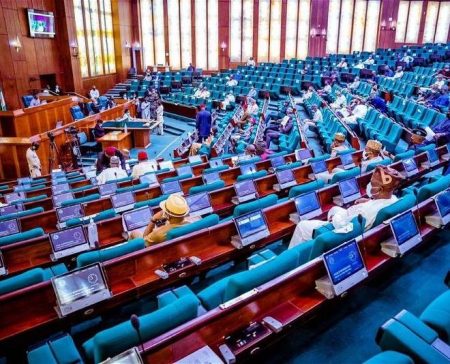Paragraph 1: The Gag Order and Its Implications
The Port Harcourt Refining Company (PHRC), a subsidiary of the Nigerian National Petroleum Company Limited (NNPCL), initiated routine turnaround maintenance on its Area 5 plant in May 2025. Coinciding with this maintenance period, a controversial internal memo surfaced, effectively muzzling PHRC employees from communicating with journalists or any external parties regarding the refinery’s operations. This gag order, issued by the Human Capital Management Lead for Operations & Maintenance, explicitly warned staff against divulging any information, citing potential violations of labor law and threatening disciplinary action for non-compliance. This move immediately sparked concerns about transparency and accountability, especially given the historical significance of the PHRC and its strategic role in Nigeria’s energy sector. The memo’s chilling effect on open communication raised questions about the NNPCL’s commitment to transparency during the maintenance period.
Paragraph 2: The Shutdown and Official Narrative
The NNPCL officially announced the PHRC shutdown on May 24, 2025, confirming earlier reports that the refinery would be offline for a month-long maintenance exercise. The official statement emphasized a commitment to transparency and collaboration with stakeholders, including the Nigerian Midstream and Downstream Petroleum Regulatory Authority. However, this official narrative contrasted sharply with the internal memo suppressing employee communication, creating a perception of a carefully managed information flow. While the NNPCL sought to portray the shutdown as a routine procedure aimed at improving efficiency and sustainability, the preemptive silencing of refinery workers fueled speculation about potential underlying issues the company might be attempting to conceal.
Paragraph 3: Concerns and Contradictions
Prior to the official shutdown announcement, reports indicated that the refinery had been non-operational for approximately three months, contradicting the NNPCL’s claim of continuous operation until May 24th. Local fuel retailers in Eleme, the community hosting the refinery, voiced their concerns about the shutdown, alleging sabotage by certain officials. These accusations further complicated the narrative, raising questions about the true reasons behind the extended period of inactivity and the sudden urgency for maintenance. The discrepancies between the official statements, internal communications, and local testimonies highlighted a lack of transparency and fostered distrust in the NNPCL’s handling of the situation.
Paragraph 4: Stakeholder Apprehensions and Demands
The Petroleum Products Retail Outlet Owners Association of Nigeria (PETROAN) expressed significant concerns regarding the shutdown’s potential impact on fuel supply and the overall economy. While acknowledging the necessity of maintenance, PETROAN questioned the feasibility of the 30-day timeline, citing potential bottlenecks and delays that could exacerbate fuel scarcity and hardship for Nigerian citizens. The association emphasized the importance of including the Premium Motor Spirit (PMS) blending unit in the maintenance scope, highlighting its critical role in the refining process. Furthermore, PETROAN urged the NNPCL to complete the maintenance before existing fuel stocks dwindled, thereby preventing market monopolization and ensuring a stable supply of petroleum products.
Paragraph 5: Deeper Implications for Nigeria’s Energy Security
The PHRC shutdown and the surrounding controversies underscore the fragility of Nigeria’s energy security. Despite being a major oil producer, Nigeria relies heavily on imported refined petroleum products due to the long-standing underperformance of its domestic refineries. The PHRC, with its considerable refining capacity, plays a crucial role in meeting domestic fuel demand. Its prolonged shutdown, coupled with uncertainties about the maintenance timeline and potential underlying issues, could exacerbate existing fuel shortages and trigger price hikes. This situation highlights the urgent need for investment in the rehabilitation and upgrade of Nigeria’s refining infrastructure to reduce reliance on imports and enhance energy independence.
Paragraph 6: Transparency and Accountability as Key Considerations
The gag order imposed on PHRC employees raises serious questions about transparency and accountability within the NNPCL. Restricting communication with the press and external stakeholders creates an environment of secrecy, undermining public trust and fueling suspicion. Open communication is essential for ensuring accountability and fostering confidence in the NNPCL’s management of critical national assets like the PHRC. Moving forward, the NNPCL must prioritize transparency in its operations, engaging openly with stakeholders and providing accurate and timely information about the refinery’s performance and maintenance activities. This will not only build trust but also facilitate meaningful dialogue and collaboration towards achieving sustainable energy security for Nigeria.









![Oyo State Claims Victory in Hockey and Abula at [Competition Name]](https://westafrican.news/wp-content/uploads/2025/05/Oyo-450x257.jpg)




